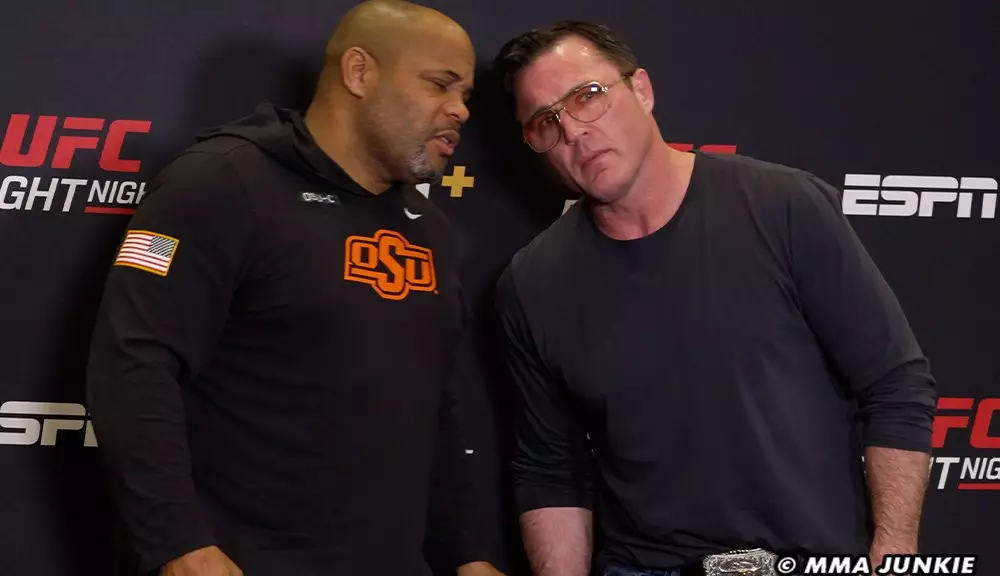The landscape of mixed martial arts (MMA) is ever-evolving, and with it, the traditions that have historically defined it are also shifting. One of these traditions is the climactic showdown between opposing coaches at the end of each season of “The Ultimate Fighter” (TUF). In the upcoming TUF 33, legendary fighters Daniel Cormier and Chael Sonnen will step into the roles of coaches. However, they have chosen to deviate from the expected path of a coaches’ fight, which is a testament to the changing dynamics within the sport.
Instead of taking each other on in the octagon, Cormier and Sonnen are proposing an intriguing alternative: why not let their respective coaching staff members, Michael Chiesa and Colby Covington, square off? This idea is noteworthy for several reasons and marks a departure from the norm that could engage fans in a fresh and exciting way.
Chiesa and Covington have had their share of verbal exchanges, hinting at a simmering rivalry that could add an extra layer of excitement to TUF 33. Both fighters hail from the Pacific Northwest, with Chiesa representing Washington and Covington from Oregon. Chiesa’s desire to determine the “best welterweight in the Pacific Northwest” adds a personal stakes component to a potential matchup. The narrative surrounding regional pride combined with the animosity between the fighters has the potential to pull in a larger audience, making this idea not just plausible but also compelling for the viewing fan base.
Sonnen argues that the suggestion is “obvious,” asserting that fans should expect these athletes to cross paths as the season progresses. This hints at a deeper layer of narrative that MMA thrives on—building rivalries and narratives that compel fans to tune in week after week.
What adds intrigue is the recent performance of both fighters within the cage. Chiesa comes off a successful submission win over Max Griffin, marking his second victory in a row, which positions him favorably for a potential matchup against Covington. Contrarily, Covington has experienced a rough patch following consecutive losses, including an injury TKO, raising questions about his current form and mental state.
The contrast in their recent performances could heighten the stakes if a fight were to materialize. Would Covington’s recent setbacks motivate him to reclaim his former glory, or would Chiesa see this as an opportunity to capitalize on a vulnerable opponent? This storyline offers ample material for build-up and excitement, enhancing the overall viewer experience.
By allowing Chiesa and Covington to fight while Cormier and Sonnen coach, this unorthodox approach reassesses the role of coaching in fighter development and the rivalry aspect within MMA. It intertwines the responsibility of a coach, who traditionally is focused on nurturing their fighter’s strategy, with the anticipation of a match that each coach can influence indirectly.
At the end of the day, MMA is about competition and storylines, and this potential Chiesa-Covington clash, scaffolded by the coaching dynamics, could serve as an exciting footnote in the ongoing saga of “The Ultimate Fighter.” As fans, we are not just spectators but participants in a growing narrative that transcends individual matchups. The result is a season that could redefine how we view rivalries in MMA and showcase the ingenuity that drives the sport forward, leaving us eagerly awaiting the next round.

